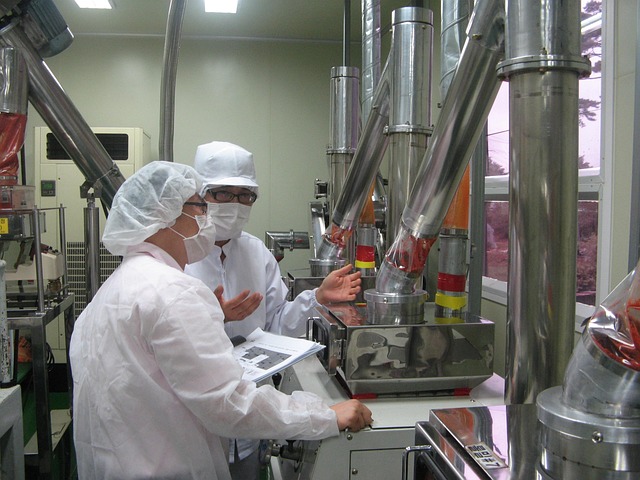MBA in Waste Management: Advancing Your Career in Environmental Leadership
An MBA in Waste Management can open doors to leadership roles in the growing field of environmental sustainability. Graduates may gain the knowledge and skills needed to manage waste systems effectively and explore opportunities in organizations focused on sustainable practices. Learn more about this path in the article.

Understanding the MBA in Waste Management Curriculum
An MBA in Waste Management offers a comprehensive curriculum that bridges business administration fundamentals with specialised environmental content. Core modules typically include strategic management, financial accounting, and marketing principles alongside specialised courses in environmental regulation, waste systems technology, and sustainable resource management. Most programmes incorporate practical components such as industry placements, site visits to waste management facilities, and consulting projects with environmental organisations. This blend ensures graduates understand both the business challenges and technical aspects of modern waste management solutions.
Career Opportunities in Waste Management Leadership
Graduates with an MBA in Waste Management find themselves uniquely positioned for diverse and rewarding career paths. Local authorities and government agencies frequently seek such professionals to oversee municipal waste programmes and develop regional environmental strategies. The private sector offers roles in sustainability consulting, waste management companies, and corporate environmental departments. Many graduates advance to positions such as Sustainability Director, Environmental Compliance Manager, or Waste Operations Executive, with responsibilities that directly impact organisational sustainability goals and environmental performance. The field’s interdisciplinary nature also creates opportunities in emerging areas like circular economy implementation and sustainable product development.
Environmental Sustainability Careers: Market Growth and Trends
The market for environmental sustainability careers continues to expand as organisations prioritise green initiatives and compliance with increasingly stringent regulations. According to industry analyses, sustainability-focused roles have grown by approximately 8% annually in the UK over the past five years. Waste management specialists are particularly sought after as companies implement waste reduction strategies to meet corporate social responsibility goals and environmental targets. Emerging trends include the integration of digital technologies for waste tracking, the expansion of the circular economy concept, and increasing emphasis on producer responsibility frameworks. These developments create rich opportunities for professionals with both management expertise and waste management knowledge.
Developing Expertise in Sustainable Waste Solutions
An MBA in Waste Management equips professionals to design and implement sustainable waste solutions across various contexts. Students develop technical understanding of waste treatment technologies, resource recovery systems, and environmental impact assessment methodologies. Equally important is the development of skills in stakeholder engagement and change management—crucial for implementing new waste practices within organisations and communities. Graduates learn to evaluate options through multiple lenses, including environmental benefit, economic viability, and social acceptance. This comprehensive approach enables them to develop waste solutions that balance immediate operational needs with long-term sustainability objectives.
Green Business Management Skills and Competencies
Beyond technical waste management knowledge, successful professionals in this field must develop a robust set of green business management competencies. These include environmental economics and accounting, which help quantify the business case for sustainable initiatives. Leadership and communication skills become essential when advocating for sustainability investments and guiding teams through operational changes. Project management with an environmental focus teaches students to balance the triple bottom line of people, planet, and profit. Additionally, many programmes emphasise systems thinking—the ability to understand complex environmental challenges holistically rather than as isolated problems. This perspective becomes invaluable when developing comprehensive waste management strategies.
MBA in Waste Management: Programme Costs and Institutions
Pursuing an MBA in Waste Management represents a significant investment in your future career. Tuition fees vary considerably depending on the institution, programme format, and duration.
| Institution | Programme | Duration | Approximate Tuition (£) |
|---|---|---|---|
| University of Exeter | MBA with Environmental Management | 12 months full-time | £27,000 - £32,000 |
| Bradford University | MBA in Environmental Management | 12-24 months | £20,000 - £25,000 |
| University of East Anglia | MBA with Environmental Focus | 12 months full-time | £22,000 - £28,000 |
| Cranfield University | MSc in Environmental Management for Business | 12 months full-time | £16,000 - £25,000 |
| Imperial College London | MSc Environmental Technology + Business | 12 months full-time | £29,000 - £35,000 |
Prices, rates, or cost estimates mentioned in this article are based on the latest available information but may change over time. Independent research is advised before making financial decisions.
Additional costs may include course materials, professional memberships, and potential study trips to waste management facilities. Many institutions offer scholarships specifically for environmental leadership programmes, including partial tuition waivers and research grants for sustainability projects. Part-time and distance learning options are increasingly available, allowing professionals to continue working while completing their studies.
Conclusion
An MBA in Waste Management offers a powerful combination of business acumen and environmental expertise that positions graduates for leadership in a rapidly evolving field. As organisations worldwide prioritise sustainability and responsible resource management, professionals with specialised knowledge in waste management systems and green business practices find themselves increasingly in demand. The degree provides not only technical knowledge but also the leadership skills necessary to implement change and drive innovation in waste practices. For those committed to environmental leadership while advancing their careers, this specialised MBA pathway represents a meaningful investment in both professional growth and positive environmental impact.




